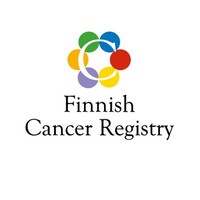Antihypertensive Drug Use and the Risk of Ovarian Cancer Death among Finnish Ovarian Cancer Patients—A Nationwide Cohort Study
Ovarian cancer and hypertension are health hazards. Women with ovarian cancer have 5 years relative survival of about 50%. Similarly aged women with treated hypertension still have a 20% increase in deaths due to cardiovascular events such as stroke or myocardial infarct.
Previous anecdotal evidence has suggested that women with ovarian cancer who are receiving anti-hypertension therapy have better survival. This large study from Finland looks at more than 12000 women with ovarian cancer, of whom about 7000 received antihypertensive drugs.
After making allowance for the associated risk of death due to hypertension, the findings confirmed that over the longer period (up to 19 years), the use of ACE inhibitors was protective. Diuretic or beta-blocker therapy had a negative impact with slight increase in hazard. ACE inhibitors have a pharmacological action via the renin/aldosterone pathway. The authors suggest this may be a factor in death from ovarian cancer.










